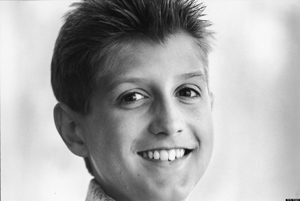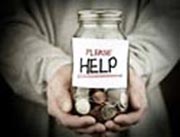
Supporting the Under-served and Under-Represented.
The Ryan White Comprehensive AIDS Resources Emergency (CARE) Act
was enacted in 1990 and reauthorized in 1996, 2000, 2006, 2009 and 2013. It is the centerpiece of the federal government's efforts to improve the quality and availability of care for medically underserved individuals and families affected by HIV/AIDS. The Health Resources and Services Administration (HRSA) allocates funding to programs created by the CARE Act under various Parts.
Ryan White was diagnosed with AIDS at age 13. He and his mother Jeanne White Ginder fought for his right to attend school, gaining international attention as a voice of reason about HIV/AIDS. At the age of 18, Ryan White died on April 8, 1990, just months before Congress passed the AIDS bill that bears his name – the Ryan White CARE (Comprehensive AIDS Resources Emergency) Act.
 Ryan was diagnosed with AIDS on December 17, 1984. He was one of the first children, one of the first hemophiliacs to come down with AIDS, and it was definitely a time where there was no education and there was hardly any information on AIDS at the time. So I was living in Kokomo, Indiana, and Ryan was attending Western Middle School, and it was something that I really didn't even believe he had. I felt like, "How could he have AIDS?" He was a hemophiliac since birth, and I just felt like "How could he be one of the first ones?" I felt like somehow, in some way, it was going to be something else. I really never really believed he had AIDS for quite a while. At that time, of course, he had no precautions, or anything. There were no precautions at the hospital. And all of a sudden the CDC shows up and the CDC started putting in all kind of precautions, you know: the gloves, the gowns, the masks and so forth, and started talking to the nurses and so forth. It became apparent just like overnight that all of a sudden things were different.
Ryan was diagnosed with AIDS on December 17, 1984. He was one of the first children, one of the first hemophiliacs to come down with AIDS, and it was definitely a time where there was no education and there was hardly any information on AIDS at the time. So I was living in Kokomo, Indiana, and Ryan was attending Western Middle School, and it was something that I really didn't even believe he had. I felt like, "How could he have AIDS?" He was a hemophiliac since birth, and I just felt like "How could he be one of the first ones?" I felt like somehow, in some way, it was going to be something else. I really never really believed he had AIDS for quite a while. At that time, of course, he had no precautions, or anything. There were no precautions at the hospital. And all of a sudden the CDC shows up and the CDC started putting in all kind of precautions, you know: the gloves, the gowns, the masks and so forth, and started talking to the nurses and so forth. It became apparent just like overnight that all of a sudden things were different.
When Ryan was diagnosed, they only gave him 3-6 months to live. So at that time, I thought every cough, every fever, I worried that it was going to be his last. And I really never thought he'd be healthy enough to go to school. But as he started getting healthy, as he started gaining weight, he started to ask, "Mom, he said, I want to go to school, I want to go visit my friends. I want to see my friends." So I really kind of put him off for a while and finally he just said, "Mom, I want to go to school, I want to go visit." So It was a long process, we had to go through almost a year and a half, he didn't go to school for about a year and a half. He was worried about taking the 7th grade over again, and he didn't want people to think he was dumb, because he was a very smart and intelligent kid. So it was a long process. Through court hearings, we thought it would take one court hearing, and we'd have all these medical experts in so to speak, and then everybody would be educated, but it didn't happen that way.
It was really bad. People were really cruel, people said that he had to be gay, that he had to have done something bad or wrong, or he wouldn't have had it. It was God's punishment, we heard the God's punishment a lot. That somehow, some way he had done something he shouldn't have done or he wouldn't have gotten AIDS.
Then we moved to Cicero, Indiana, and there, the community welcomed us. And it was all because a young girl, named Jill Stuart, who was president of the student body, who decided to bring in the medical experts and talk to the kids, and then the kids went home then and educated their parents. So Ryan was welcome, he got to go to school, he got to go proms and dances. He even got a job. It was kind of funny, he came home once after he turned 16 and told me he had a job for the summer. I thought, "Oh my gosh. Who is going to hire you, knowing who you are?" I said, "What are you going be doing," and he said, "I'm working at Maui's Skateboard shop." I said, "Really? What are you going to be doing?" and he said, "I'm going to be putting together skateboards." And I said, "How much are they going to pay you?" and he said "$3.50 an hour." I said, "Ryan, that won't even buy your gas to Indianapolis and back." He said, "Mom, you don't get it. I got a job just like everyone else does." So it was really important to Ryan, to just be one of the kids, and to just fit in. He never bragged or anything about who he was, or what he got to do, he just wanted to be around his friends.
Well a lot of people will say, "Your son was such a hero" and all that, but to me, he was my son. And you know, sometimes it's so confusing, because he was my little boy, and to share him with everybody, because he wasn't perfect, but at the same time, he was my son.
For complete information about the Ryan White CARES Act, please contact a Bradley-Reid staff member
-
"Teaching and preparing our kids is one of the most significant things we can do as a society"
-
" Education is what we use to coach the mind to make correct selections. It is thru education that we develop a rational mind."
-
"No one should have to feel completely alone when facing a problem or crisis. "


